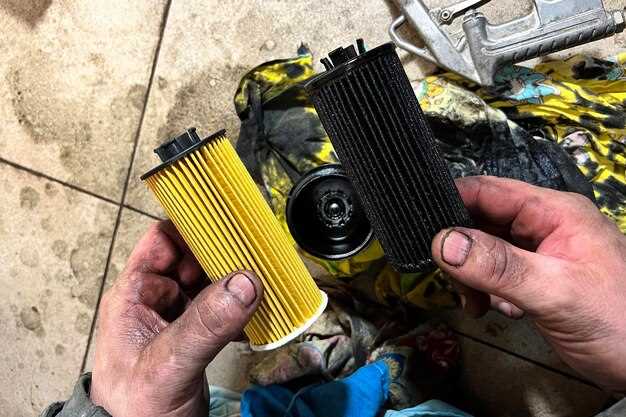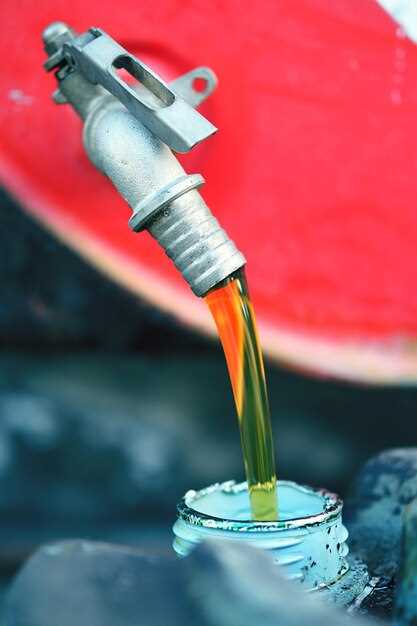
How to Prevent Fuel System Corrosion
- Arthur Rodriquez
- 0
- Posted on

Fuel systems are essential components of any internal combustion engine, delivering the necessary energy for operation. However, one of the significant challenges these systems face is corrosion. Corrosion can lead to equipment failure, reduced efficiency, and costly repairs. Understanding how to prevent this degradation is critical for maintaining fuel system integrity.
Corrosion in fuel systems is often caused by the presence of water, contaminants, and varying fuel compositions. These factors can create an environment where rust and other forms of corrosion thrive. To combat this issue, it is crucial to implement several effective techniques that not only extend the lifespan of the components but also ensure optimal performance.
By adopting proper maintenance practices, selecting high-quality fuels, and utilizing protective additives, operators can significantly minimize the risk of corrosion. In this article, we will explore various tips and techniques to prevent fuel system corrosion, providing practical solutions to enhance the durability and reliability of your fuel systems.
Choosing the Right Fuel Additives for Corrosion Protection

Corrosion in fuel systems can lead to significant operational issues, including reduced efficiency and costly repairs. One effective way to combat this problem is by selecting the appropriate fuel additives designed specifically for corrosion protection.
When choosing fuel additives, consider those that contain corrosion inhibitors. These chemicals form a protective film on metal surfaces, preventing moisture and reactive substances from causing damage. Look for products that specify their effectiveness in protecting against corrosion in fuel systems, as some additives may be more suitable for specific types of fuel.
Another important aspect is the compatibility of the additive with your fuel type. For instance, fuels like ethanol and biodiesel can be more corrosive than traditional gasoline, necessitating additives specifically formulated to combat their unique chemical properties. Always check the manufacturer’s recommendations to ensure optimal performance and safety.
Regular usage of fuel additives can also help maintain system integrity over time. Continuous application can inhibit the formation of rust and other corrosive materials, ensuring a cleaner and more efficient fuel system. Additionally, some additives provide cleaning properties that further reinforce corrosion resistance by removing deposits and preventing the build-up of harmful substances.
Lastly, consulting with professionals or conducting thorough research can guide you in selecting the right additives tailored to your specific fuel system needs. By prioritizing the right fuel additives, you can effectively minimize corrosion, prolong the life of your equipment, and maintain efficient fuel system performance.
Routine Maintenance Practices to Halt Fuel System Deterioration
Routine maintenance is essential for preventing fuel system corrosion and ensuring optimal performance. Regularly scheduled checks and interventions can significantly extend the life of your fuel system by addressing potential issues before they escalate.
1. Fuel Quality Monitoring: Regularly inspect the quality of fuel in your storage tanks. Contaminants like water and dirt can promote corrosion. Conduct tests for water separation and implement a filtration system to keep the fuel clean.
2. Fuel Additives: Utilize fuel additives designed to combat corrosion. These additives form protective layers within the system, reducing oxidation and preventing rust from forming on metal surfaces.
3. Regular Fuel System Inspections: Schedule periodic inspections of the entire fuel system, including tanks, lines, and filters. Look for signs of wear or damage that could lead to leaks and corrosion. Addressing small issues early can prevent larger problems later.
4. Vented Storage: Ensure that fuel storage tanks are properly vented. This helps to minimize pressure differences and reduces moisture accumulation, a key factor in driving corrosion.
5. Proper Fuel Tank Maintenance: Clean and maintain fuel tanks as per the manufacturer’s guidelines. Regular cleaning helps remove sludge and sediment, which can foster bacterial growth and corrosion.
6. Environment Control: Keep fuel storage areas well-ventilated and dry. This reduces humidity and decreases the risk of water condensation within the fuel system, which is a catalyst for corrosion.
7. Change Filters Regularly: Replace fuel filters on a routine basis to prevent contaminants from entering the fuel system. A clean fuel filter reduces the chances of corrosion by maintaining optimal flow and preventing clogging.
Implementing these practices will significantly enhance prevention efforts against fuel system corrosion, ensuring longevity and reliability of your fuel system components.
Identifying and Addressing Environmental Factors Contributing to Corrosion

Corrosion within fuel systems can be significantly influenced by various environmental factors. Identifying these factors is crucial for effective prevention. One primary contributor is environmental humidity. High moisture levels can accelerate corrosion processes, particularly in areas where condensation forms. Regular monitoring of humidity levels around fuel storage and distribution systems is essential.
Another factor to consider is temperature fluctuations. Extreme temperatures can lead to the expansion and contraction of materials, allowing for the formation of micro-cracks where corrosive agents can infiltrate. Insulating fuel tanks and systems can help mitigate these effects, maintaining a more stable environment.
Pollutants present in the air, such as sulfur dioxide and chlorides, also contribute to corrosion. These contaminants can settle on surfaces and react with fuel system materials. Routine cleaning and maintenance of storage tanks and fuel lines can minimize the impact of these pollutants, enhancing system longevity.
Furthermore, the presence of soil contaminants, particularly around underground fuel tanks, can pose corrosion risks. Soil with high acidity or salinity levels can lead to electrochemical reactions that undermine the integrity of tank materials. Implementing protective barriers or coatings on underground tanks can serve as a prevention strategy against these soil-related factors.
By understanding and addressing these environmental contributors, fuel system operators can implement targeted strategies to reduce the risk of corrosion, ensuring safer and more efficient fuel system operation.